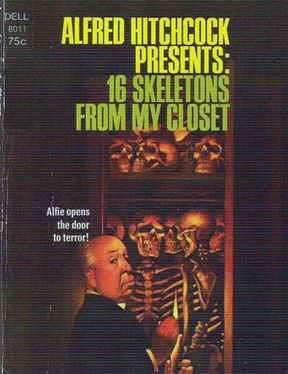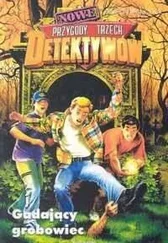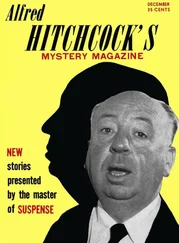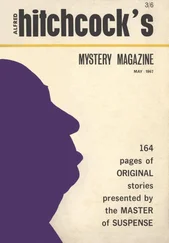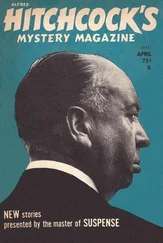Henry came to my apartment at one o'clock in the afternoon. He appeared shaken. "Horrible," he muttered. "Horrible."
"What's horrible?"
"Custer's massacre." He wiped his forehead with a handkerchief. "I'll have to avoid things like that in the future."
I almost laughed. Rather a neat touch. Henry knew how to act. "And now we see your machine?"
Henry nodded. "I suppose so. We'll take your car. Mine's in the garage for repairs."
I had driven him about a mile, when he told me to pull over to the curb. I glanced about. "Is this where you live?"
"No. But from here on I drive your car. You will be blindfolded and you will lie on the back seat."
"Oh, come now, Henry!"
"It's absolutely necessary if you want me to take you to the machine," Henry said stubbornly. "And I've got to search you to see that you aren't carrying a weapon."
I was not carrying a weapon and Henry's idea of a blindfold consisted of a black hood that fitted over my entire head and was fastened by strings at the back of the neck.
"I'll be keeping an eye on you through the rear view mirror," Henry cautioned. "If I see you touch that blindfold the whole thing is off."
Automatically I found myself trying to remember the turns Henry made as he drove and attempting to identify sounds which might tell me where he was taking me. However, the task proved too complicated and I finally relaxed as much as I could and waited for the drive to end.
After an hour, the car finally slowed to a stop. Henry left the wheel and I heard what I believed to be the sound of garage doors being opened. Henry returned to the car; we moved forward fifteen feet or so, and stopped again.
The doors were closed and I heard a light switch flicked on.
"We're here," Henry said. "I'll take off that blindfold now."
As I had surmised, we were in a garage — but plywood sheets had been nailed over all the windows and a single electric light burned overhead. A stout oak door was in the cement building-block wall to the left.
Henry produced a revolver.
A horrendous thought gripped me. What a fool I had been! I had blindly — literally and figuratively — allowed myself to be lured here. And now, for reasons unknown to me, Henry was about to kill me!
"Henry," I began, "I'm sure we can talk this over and come to some…"
He waved the gun. "This is just a precaution. In case you have any ideas."
I was too uneasy to have any ideas.
Henry produced a key and went to the oak door. "This used to be a two-car garage, but I divided it in half. The time machine is in here." He unlocked the door and switched on an overhead light.
Henry's time machine was just about as I had anticipated — a metallic chair with some scant leather upholstering, a large mirror-bright aluminum shield or reflector behind it, and a series of levers, dials, and buttons on a control board attached to the platform on which the chair stood.
The room was windowless and all four walls — with the exception of three grated ventilators approximately shoulder high — were solid cement block. The floor was concrete and the ceiling was plastered.
I smiled. "Henry, your machine looks almost like an electric chair."
"Yes," he said musingly, "it does look rather like that, doesn't it?"
I stared at him. Could he have been so insidious as to actually… I studied the machine again. "Naturally I want a demonstration. How does it work?"
"Get into the chair and I'll show you which levers to pull."
The device did look a great deal like an electric chair. I cleared my throat. "I have a better idea, Henry. Suppose you take a trip in the chair. I'll just wait right here until you return."
Henry gave it a thought. "All right. But you'll have to leave the room."
Ah ha, I thought.
"You see when I start the machine," Henry said, "it creates quite a disturbance around me. That's why I had to make this room so solid. I've installed ventilators to take care of some of the turbulence, but I'm not too sure how well they work. I have no idea what might happen to you if you remained."
I smiled. "I might possibly be injured? Or killed?"
"Exactly. So if you'll leave and close the door I'll get on with it. And another precaution. When I return, you've got to be out of the room, too."
I chuckled to myself as I left and closed the door behind me. I lit a cigar and waited, amused.
What happened next was most impressive. First there was a low whine, as though a generator were starting. It rose gradually in pitch and then came a rumbling sound mixed with the undulating keen of a fierce wind. It increased in volume and lasted for approximately a minute.
Then it stopped abruptly and there was absolute silence.
Yes, I thought. Altogether a good show. But then it would have to be if Henry expected to extract two hundred and fifty thousand dollars from me.
I went to the door and opened it.
The room was empty!
I stood there gaping. It couldn't be! The only way out of the room was the door I had just entered and even that was certainly too small to pull the chair through. And the only other openings were the three grated ventilators and they were less than two feet square!
The whining suddenly rose again. Strong air currents swirled around the room and I found myself gasping as I fled the room and slammed the door behind me.
The noise became deafening and then, just as abruptly as before, it stopped.
The door clicked open and Henry stepped out of the room. Behind him I could see the time machine back in its place.
Henry appeared thoughtful. Finally he shook his head. "Cleopatra wasn't even good-looking."
My heart was still pounding. "You were gone only a minute or two."
He waved a hand. "In one time sense. Actually I spent an hour on her barge." He came back to the present. "You can raise two hundred and fifty thousand dollars?"
I nodded weakly. "It will take a week or two." I wiped my forehead. "Henry, I've got to take a trip on that chair."
Henry frowned. "I've been thinking that over, Mr. Reeves. No. You could steal my invention."
"But how? Wouldn't I have to come back here?"
"No. You could go into the past and then return to any place in the world. Perhaps a thousand miles from here."
He pulled a small wrench from his pocket and began disconnecting a section of the control panel.
"What are you doing?"
"I'm taking out some key transistors. I think I'll keep them on my person. That way if someone should steal my time machine he would find it useless."
Henry drove me back to my apartment, taking the same precautions as before, and then he left me.
In America we seem to have a feeling of guilt about discarding old license plates and Henry had been no exception. There had been four old sets of them nailed to the garage wall and I had memorized two of them.
I got Shippler on the phone. "Can you trace license numbers?"
"Yes, Mr. Reeves. I have connection at the state capitol."
I gave him the numbers. "The first is a 1958 license number and the second is 1959. I want the name and address of the owner as soon as possible. Phone me the moment you get the information."
I was about to hang up.
"Oh, Mr. Reeves. We have the report on your wife for yesterday. Would you like me to give it over the phone?"
I had forgotten about that. "Well?"
"She left the apartment yesterday morning at ten-thirty. She bought some orange sticks and nail polish at the drugstore."
"What shade of nail polish?" I asked dryly.
"Summer Rose," he said proudly. "Then she went to — "
"Nevermind all that. Did she meet anyone?"
"No, sir. Just the drugstore clerk. A woman. But in the evening she again left your apartment at three minutes after seven. She met a woman named Doris. My man overheard Doris say that she has twins."
Читать дальше
